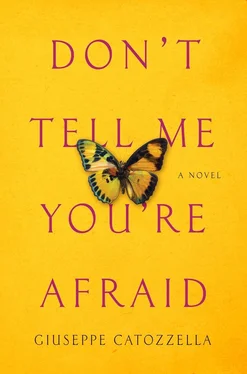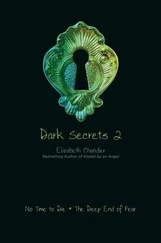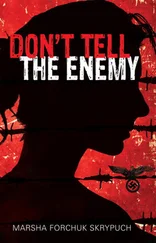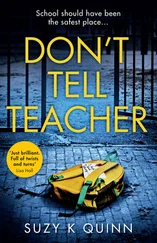It was the same for Hooyo, who had to wear a burka to go to work. She hated it, as we all did: We loved our bright colors, our orange, red, yellow, green, blue, and purple veils and garbasar, which for us had always represented the essence of the land and of femininity.
Overnight, however, the black burka for everyone.
For me and Hodan it was difficult.
For her, no more singing with the group, no more singing at all, not even hymns to freedom and peace.
And for me, no more running.
One of those evenings Hodan came by to eat at home with us. After supper Aabe and Hooyo said they wanted to talk to the two of us. Our brothers and sisters stayed outside to wash the bowls and rice pot; in silence we went to our parents’ room.
Aabe, sitting on the only chair, eyed us nervously and kept fiddling with his cane, shifting it from hand to hand. It was the first time we’d seen him so agitated. For her part, Hooyo — who was covered up to her head with the gauzy white veils that before then she’d never worn in the house — took a seat on the mattress and kept ironing out first her skirt, perfectly smooth over her lap, then the white cloth handkerchief she held.
Hodan and I gripped each other’s hands tightly.
Without their even having to tell us, we were both afraid they might forbid us from doing what we loved. That they would tell us that everything had become too dangerous, that no one could afford to do what he wanted anymore. In part because family members would pay for it. Those were the methods Al-Shabaab used: exemplary punishment for siblings or parents to serve as a warning.
I was shaking and I felt feverish; I was freezing despite the high temperature. If Aabe ordered us to stop, what would we do? We could go cry in Hooyo’s arms, pleading for mercy, as we had when we were little. But this time it would do no good.
We had only two choices: obey or disobey.
And disobeying would be like leaving home for good.
But Aabe was Aabe.
Without our having to say a word, nervously gripping the cane with those big hands sticking out from the sleeves of his beige cotton shirt, he had read our thoughts as they appeared on our faces.
He got up from his chair and slowly came over to us.
He rested a hand first on my forehead, then on Hodan’s.
“My daughters, everything that up until yesterday was normal today is complicated.”
His voice was serious. Hodan and I looked at each other. We knew what he would say. It was the end of our dreams. We could stop imagining some kind of future; reality had rained down like a bucket of ice water.
Together we lowered our eyes and stared at our bare toes, coated with white dust.
After a pause, Aabe continued. “But your mother and I believe that you should keep doing what you are doing, if what you are doing is your calling and makes you happy.”
Hot, silent tears fell in unison from my eyes and Hodan’s.
“Hooyo and I will always support you, Islamic Courts or not. Al-Shabaab or not.”
Hooyo, on the mattress, was weeping the way she did when she didn’t want anyone to notice. She kept blowing her nose repeatedly, as if she had a cold, but we’d known since we were little that there was nothing wrong with her.
“You just have to recognize that what you’re doing is risky and not well regarded. Not only by the fundamentalists but also by many people who will let themselves be influenced and think that you are both crazy. Do you know this?”
“Yes,” I replied, eyes still bright.
“Yes, Aabe, we know,” Hodan said.
“So then you are free to build your future. Your mother and I are aware that each of you has a gift. Go and take what is coming to you, my daughters.”
By that point we were sobbing. Aabe hugged us tightly and told us to leave them, that he and Hooyo wanted to be alone for a while.
Before we went out, however, he called Hodan back.
“Hodan…”
She turned, already at the door.
“Yes, Aabe?”
“Make sure that Hussein’s father feels the same.”
“Thank you, Aabe.”
We went out to the courtyard, into the air and light, leaving our mother and our father in the darkness of their room, wondering if they had made the right decision.

NEVERTHELESS, in those weeks everything was changing no matter what. Our lives as Somalis were destined to be transformed forever.
One morning, without notice, Alì and his family moved out.
I got up at dawn along with my brothers and sisters, awakened by noises coming from the courtyard. We all stumbled out in our pajamas, barefoot and drowsy. I was just in time to see them pile into a green pickup truck towing a rusty trailer that Aabe Yassin had borrowed from someone, before they left for good. Gone, without our even knowing where.
Yassin, Alì, and his brothers had spent the night loading up the decrepit truck with boxes in which they had managed to pack away their entire lives.
The previous day the Hawiye clan, which we Abgal were part of, had announced that they had formed an alliance of sorts with Al-Shabaab; it seemed they didn’t want to be at war for a change. This, however, meant that the Darod in our area were in danger, since Bondere was an Abgal district; Darod families had continued to live there only because they were protected by their Abgal friends. No one would have dared do any harm to Aabe Yassin; everyone knew that he was our father’s best friend, that they were like brothers.
But that night, simultaneously, scores of families had made the same decision Alì’s father had. Once again, overnight, Al-Shabaab had changed my life.
The morning was drenched with a surreal light. At dawn the air, misty with the sea’s moisture, seemed inhabited by myriad swift ghosts. People from my district were moving to places as yet unknown. The important thing was to get away as quickly as possible. Leave their history behind.
Hooyo, like almost all of our neighbors, had not gone to work. Al-Shabaab’s men might come and make an inspection, house by house. We all had to be present.
When I ran out to the pickup, Alì was sitting in the back next to the window, eyes downcast. Aabe Yassin was in front, next to the driver, who was a friend of his and Aabe’s. The engine was already running. I rapped on the glass and Alì turned. A pall of despair had settled over his face like wax. He had no eyes anymore. His face was a waxen mask, a mask of absence.
He looked at me, but he was focused on a point in the sky instead of on me while I, on the other side of the glass, gestured for him to roll down the window. Alì didn’t hear me; he seemed dazed. I turned to look behind me.
He was staring at the top of the eucalyptus.
Only when the pickup truck started to move did he look at me. He may have been crying. Finally.
Alì, his brothers, and Aabe Yassin had been part of my life since I was born and now, like ghosts, in a fraction of a second they were vanishing.
Hussein’s family had made the same decision. They were also Darod, and there was no tolerance for mixed marriages anymore. Everything that had been gained in decades had gone up in smoke in a single day.
They had decided to leave, like most of the Darod.
Hodan, in the course of a few hours, found herself having to make a painful decision.
Leave or stay.
After an anguished night she’d decided to stay with us. What would become of her marriage was a question that there’d been no time to consider. Sometimes the weightiest decisions are carried along on the slight drift of a breath of air. And we with them, inadequate, flimsy. At least, that’s what happened to us that morning.
Читать дальше





![Ally Carter - [Gallagher Girls 01] I'd Tell You I Love You But Then I'd Have to Kill You](/books/262179/ally-carter-gallagher-girls-01-i-d-tell-you-i-lo-thumb.webp)







